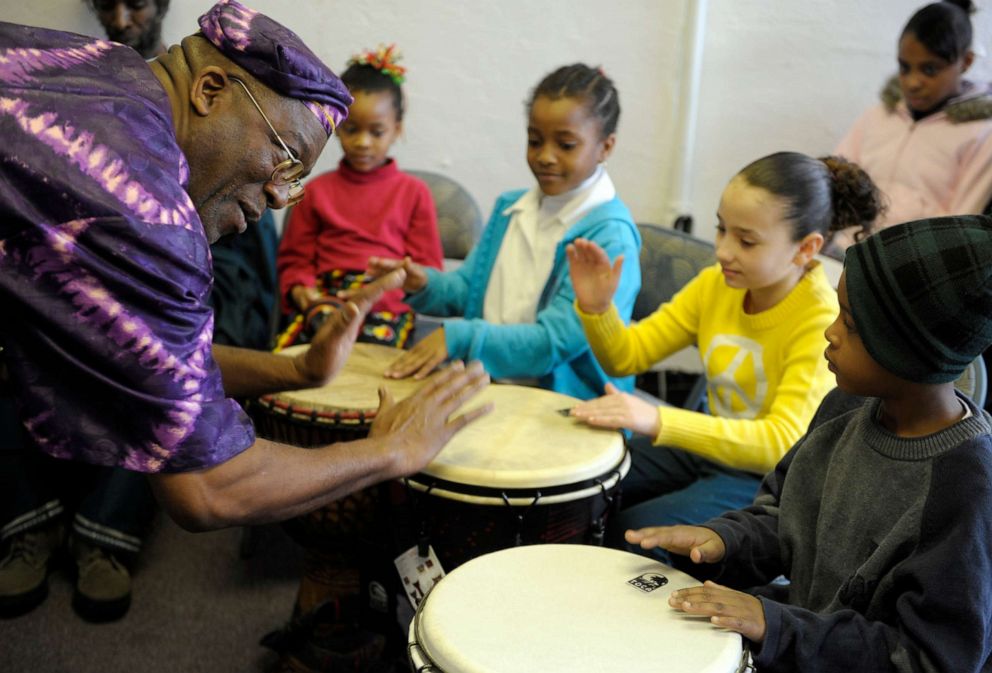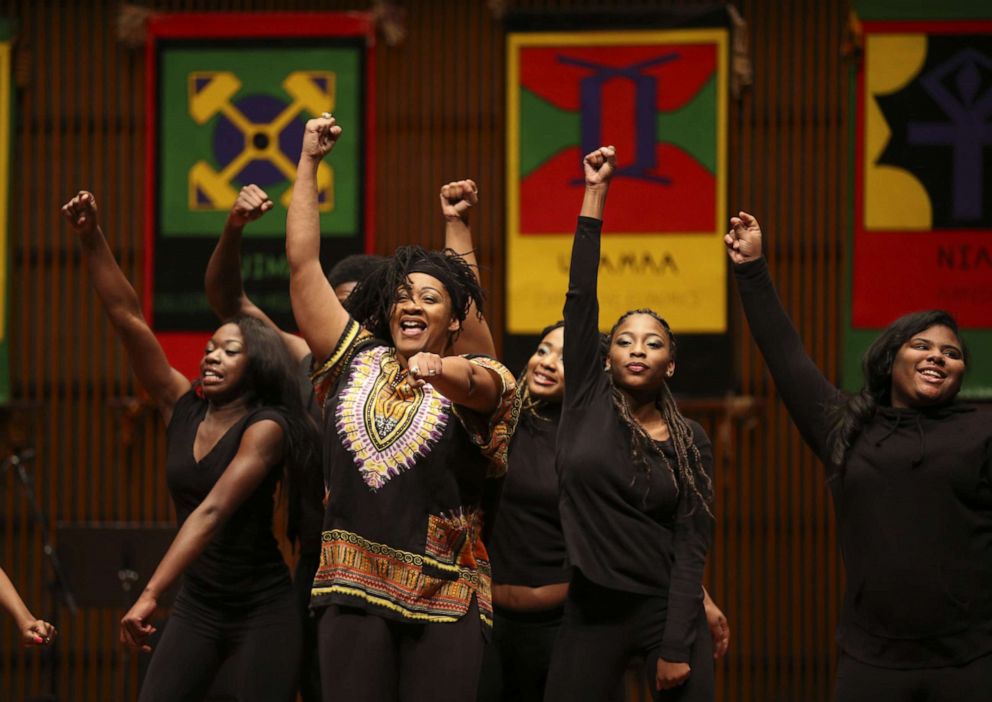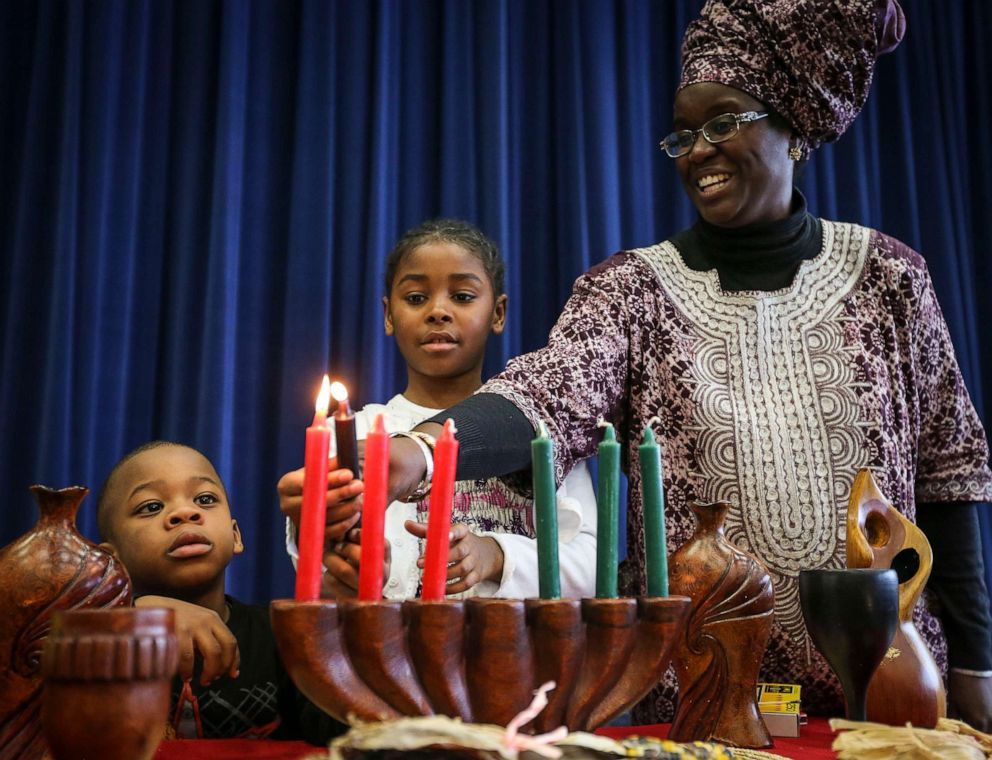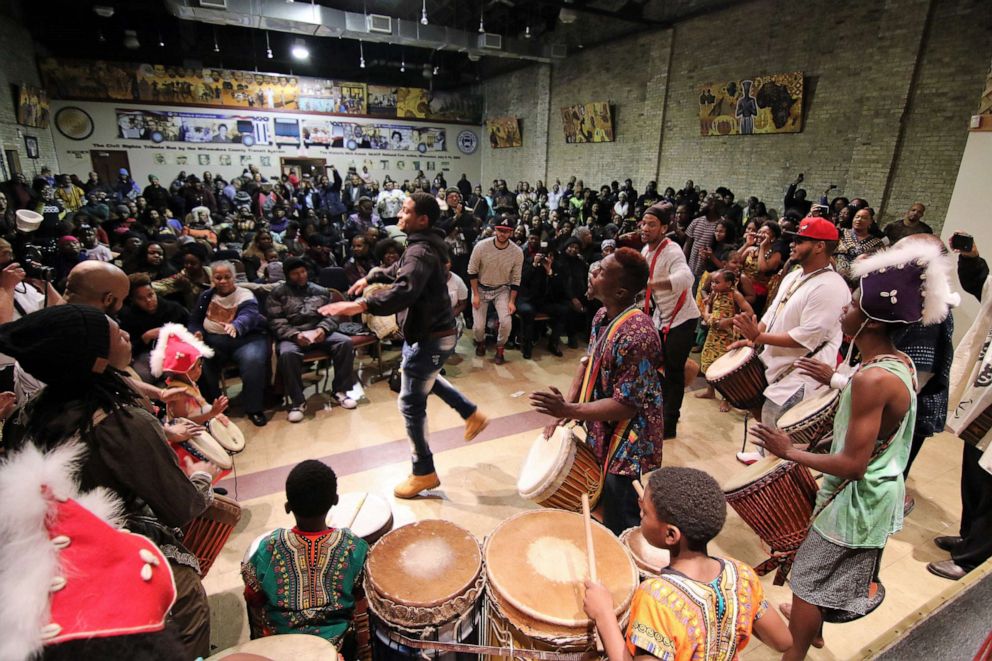Kwanzaa 2022: Everything you need to know about the week-long holiday
The holiday celebrating African culture and heritage lasts from Dec. 26 to Jan 1.

Monday marks the beginning of Kwanzaa, the seven-night celebration honoring African American and Pan-African culture and traditions.
Celebrated from Dec. 26 to Jan. 1, Kwanzaa stretches across millions of homes and communities around the world.
Here's what you need to know about the Kwanzaa holiday.
How did Kwanzaa originate?
Dr. Maulana Karenga, professor and chair of the department of Africana Studies at California State University, Long Beach, created Kwanzaa in 1966 during the Black Freedom Movement.
The origins of the non-religious holiday are tied back to the first harvest celebrations in Africa, according to the official holiday website.
What does Kwanzaa mean?
The Swahili phrase "matunda ya kwanza," means "first fruits." African culture and major religions have a deep history of celebrations around "first fruits."
How is Kwanzaa celebrated?
During the holiday, families and communities organize around what are known as the seven principles, or Nguzo Saba.
The seven principles include, unity, self-determination, collective work and responsibility, cooperative economics, purpose, creativity and faith.
People celebrate with feasts, also known as karamu, music, dance, poetry, narratives and gifts that are encouraged to be educational and promote African heritage.
The holiday ends with a day that is dedicated to reflection and recommitment to the Seven Principles and other core cultural values.
What are the seven symbols of Kwanzaa?
The seven symbols of Kwanzaa are the Kinara, a candle holder; Mishumaa Saba, seven candles; Mkeka, the mat; Mazao, crops; Muhindi, ears of corn; Kikombe Cha Umoja, a unity cup; and Zawadi, gifts.
At the beginning of the holiday, a central place in the home is chosen to spread out an African cloth on a table, then the mat, followed by the other symbols, like the candle holder, crops, corn and unity cup.
What do the colors red, green and black symbolize?
The Mishumaa Saba consists of seven candles. One black candle represents the people, or unity, and gets placed in the center of the Kinara.
The three red candles represent the people's struggles and three more green candles symbolize the future and hope that can come from struggle.
Who can celebrate Kwanzaa?
Kwanzaa is a cultural holiday, not a religious holiday, that can be celebrated alongside other major religious and secular holidays.












